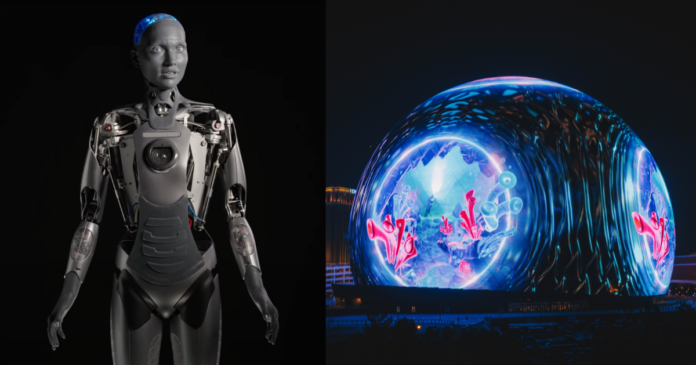At CES 2025, industry innovators showcased how artificial intelligence is revolutionizing hospitality in Las Vegas. The concept is that every guest—whether a frequent visitor or a first-timer—can enjoy a tailored experience, setting a new standard beyond the traditional one-size-fits-all service.
Introducing the AI-Driven Hotel Experience
Set to open near Allegiant Stadium in May 2025, the soon-to-be-launched Otonomus Hotel claims the title of the first AI-powered hotel in the United States. According to Steve Escalante, vice president of business development for the holding group behind the property, the goal is to use technology to offer guests a deeply personalized experience. Rather than relying on outdated systems that struggle with integration, the hotel leverages an all-in-one management platform. From a gamified pre-check-in questionnaire to the hotel’s “O Brain” that gathers preferences during a guest’s stay, every detail—whether it’s your favorite coffee, ideal room temperature, or the window orientation you prefer—is remembered and applied during future visits. Guests interact with the system via the “KEE” app, described as a “24/7 butler in the palm of your hand.”
Tech Innovations Enhancing Service
The hotel’s integrated system allows for smooth service delivery. For instance, guests can request a towel directly through the app without the need for the front desk to relay the message. Beyond hospitality, the technology behind Otonomus is also drawing interest from other properties, with many eager to explore licensing options once the concept is perfected.
Meanwhile, other companies are exploring AI’s potential in the broader service industry. Sorenson, known for its live interpretation services, has unveiled Sorenson Forum—a real-time translation app that supports 25 languages and numerous dialects. Designed to handle large-scale events by simply scanning a QR code, the app promises to make international conferences more accessible. With cities like Las Vegas attracting millions of international visitors, the ability to listen to keynotes and presentations in one’s native language could prove invaluable.
Robots and Automation in the Hospitality Sector
AI and robotics are already making their mark in Las Vegas. Richtech Robotics, a local company, has introduced multiple robotic solutions that serve various functions. At several Boyd Gaming properties, robots are now delivering food, while a bartender robot named ADAM has become a crowd favorite—not just for preparing drinks but also for its entertaining performances. Other robots in the city include the Tipsy Robot at Planet Hollywood and the Venetian, which serves as a high-tech mixologist, and humanoid greeters like Aura at the Sphere. Richtech’s Skylark system further exemplifies AI’s utility by offering an AI chatbot that can manage requests, deliver items, and even operate elevators.
Striking a Balance: Technology as a Partner
The push for AI in Las Vegas comes at a time when the hospitality industry is grappling with labor shortages. While there are concerns among workers about being replaced by machines, industry leaders emphasize that these technologies are intended to complement rather than replace human staff. In fact, by reducing labor costs through automation, hotels can reinvest savings into hiring more employees who focus on enhancing guest experiences.
Unions, including Culinary Union Local 226 and Bartenders Union Local 165, have proactively secured protections in contracts. Their agreements mandate a six-month notice for any job impact due to new technologies and provide provisions like free training, severance packages, and continued benefits. This approach is designed to give workers time to adapt and transition, ensuring that they remain valued assets in the evolving industry.
Overcoming Challenges and Ensuring Guest Privacy
Adopting new technologies in a traditionally slow-to-change sector comes with challenges. The high cost of advanced systems like Richtech’s Skylark or ADAM can be a barrier, though prices are expected to drop over time as adoption increases. Additionally, while data collection is key to providing a personalized experience, both operators and guests are cautious about privacy concerns. Otonomus Hotel intends to give guests control over their data, ensuring transparency about how their information is used.
Ultimately, the industry’s success in integrating AI hinges on minimizing disruptions and maximizing benefits for both guests and employees. As the technology matures, the aim is to create a seamless environment where advanced systems alleviate common issues and enhance the overall service quality.
By embracing AI, Las Vegas is positioning itself as a testbed for innovative hospitality solutions that could eventually set a new industry benchmark nationwide.




